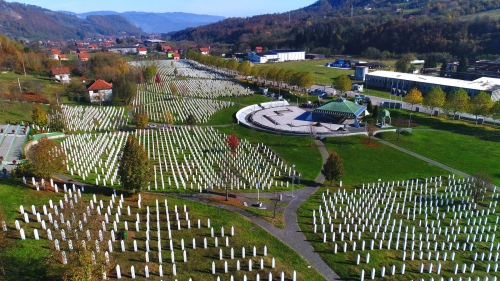Headlines While We Slept: Kosova
Several major world headlines Tuesday focused on the status of the Yugoslavia conflict. Most online publications and news services reported that the crisis stands at a crucial juncture, with last minute peace negotiations to avert what many fear to be an impending allied invasion in progress.
Prominent online U.S. papers and news services carried varied portrayals of the conflict. CNN Interactive juxtaposed increased allied attacks, including reports of civilian casualties and the bombing of a Serbian post on the Albanian border, with efforts by Russia's Kosova envoy Viktor Chernomyrdin to reach a diplomatic accord. Washingtonpost.com neglected news of Kosova on its front page, but later briefly mentioned attempts by the European Union to hold talks with authorities in Yugoslavia.
The New York Times on the Web headlined assurances by Clinton that responsibility for any "cleanup" in Kosova and Yugoslavia would be borne by the Europeans. The story focused mainly on Clinton's Memorial Day address at Arlington cemetery, which essentially sought to justify U.S. interventionist strategy in the conflict as a means of averting future catastrophes that would endanger even more American lives. Clinton said that U.S. policy has the support of the Europeans. An Latimes.com story detailed allied troop build-up and suggested that assurances by the U.S. government of no ground invasion are bogus. The report noted that troop preparations are slow, but revealed an unspoken allied commitment to the use of ground forces in Kosova. Neither latimes.com nor New York Times on the Web front-page stories showed much interest in the possible break-through in peace talks and neither mentioned the latest reports of civilian casualties as a result of NATO bombing.
Foreign online publications from countries that are major power brokers in the conflict seemed more focused on Chernomyrdin's efforts. Russia Today carried a Reuters report noting that Moscow officials are optimistic about an imminent diplomatic resolution. The report said that Chernomyrdin had convinced Milosevic of the necessity of NATO troops forming the core of a peacekeeping force in Kosova. But it further noted that other Russian officials are less welcoming of such a settlement, their objection being that they perceive the United States as wanting to renew bipolar world tensions by the creation of a de facto U.S. dictatorship in Europe.
Britain's Guardian Unlimited reported Yugoslavia had accepted NATO's peace plan which calls for the complete withdrawal of Serb forces from Kosova and the deployment of NATO-led peace-keeping troops. The Guardian noted that all belligerent parties, including the United States and Britain, are interested in finding a peaceful resolution to the conflict.
France's Le Monde Interactif reported that the Allies wish to "verify" Yugoslavia's acceptance of the peace plan, but also provided detail on the continued devastation of Yugoslavia by NATO bombing. Le Monde reported that France and Germany have called for a meeting of the G-8 countries to discuss Milosevic's alleged May 28 acceptance of the peace proposals.
The major foreign publications online seemed to present a broader perspective on the recent developments than their American counterparts. U.S. publications left the reader with an uneasy feeling of impending war but they failed to provide details of when and why. On the other hand, publications such as France's International Herald Tribune effectively tied recent developments together to provide a better understanding of the impending deployment of ground-troops. It noted that troops would probably be committed in the next two weeks, to allow Kosovar refugees ample time to return before the onset of winter, unless Milosevic agrees unequivocally to NATO demands. But, as Le Monde reported, such a concession becomes more difficult for Milosevic to make amid mounting internal criticism from ultra-nationalists and opposition parties over the rising NATO toll on Yugoslav civilians. In any case, the International Herald Tribune at least informed the reader of an all-important upcoming G-8 summit meeting on June 18, which it described as "a potential turning point" in NATO policy.
Zakariya Wright is a staff writer at iviews.com

















